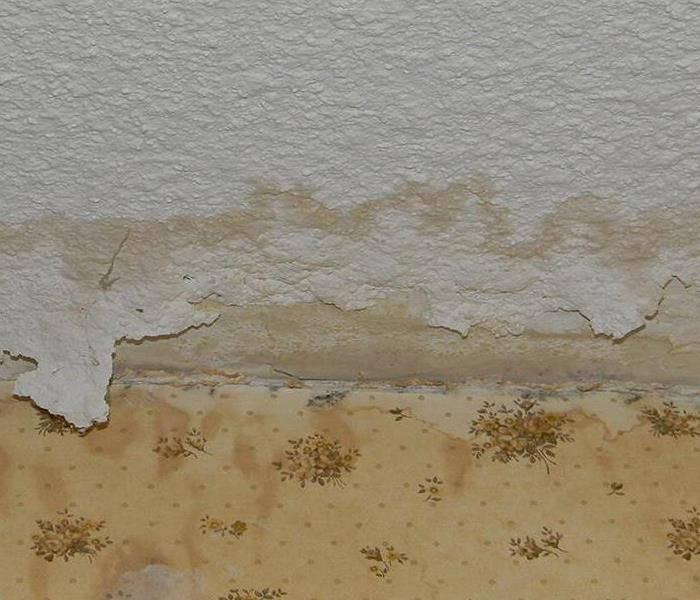Is That Water Damage Old or New?
10/22/2019 (Permalink)
Has that water damage always been there? Or did it just happen? It’s wise to figure out if water damage is new or old, so that you know how extensive the damage may be, and what you need to do to stop the water intrusion.
Step One: Determine Materials
Water effects different materials in different ways. If tile, brick, or another tough material has been affected by water damage, chances are the damage is old. It takes time to wear on these materials and create leaks. On the other hand, if your damage is in drywall, hardwood flooring or carpet, it could be new or old water damage. Even a bit of water can affect these materials right away.
Step Two: Look for Rings
Drywall, wooden flooring, and other softer materials may develop “rings” if they have suffered water damage over a long period of time. The water soaks in and discolors the material. It dries out but leaves a stain behind. If this happens a few times, the effect is like several rings of water damage, some large and some small. This means the water damage is old.
Additionally, this pattern of water damage means that the water damage is intermittent. It happens frequently, but there are dry spells where the material can dry out. The source of water could be a pipe that only runs sometimes, like the supply pipe to the shower. Or, it could be the result of a roof leak, which only causes water damage when it rains.
Step Three: Touch the Spot
Areas that have new water damage are likely to be wet but not soft. If you touch the water damage and the drywall is soft, the water has had time to soak in and ruin the integrity of the material. This means the water damage is likely to be old. Although, it’s important to note that tough materials like tile may never soften at all.
Step Four: Assess Mold
Mold growth can begin within 24-48 hours of water damage. If you have visible mold on the water damaged area you know it has been soaked for at least 48 hours. More extensive mold growth may indicate the water damage is even over.
Although, the absence of mold doesn’t necessarily mean the damage is new. There could be other environmental factors that explain the lack of mold growth. Maybe it’s too hot or cold for mold to grow. Or, perhaps the excess moisture dries too quickly. If you have a HEPA filter running it my be removing mold spores, limiting their growth on the water damaged area.
Step Five: Ask the Professionals
If you’re wondering how to tell if water damage is new or old, it’s likely because you’re not sure of the cause, or if you can blame the last owner of your home for the trouble. Consulting with the pros at SERVPRO of Lynn/Lynnfield can help. We can assess the age and severity of the damage. We can also help you find the cause and restore the damage.
Call SERVPRO of Lynn/Lynnfield today at 781.593.6663





 24/7 Emergency Service
24/7 Emergency Service
